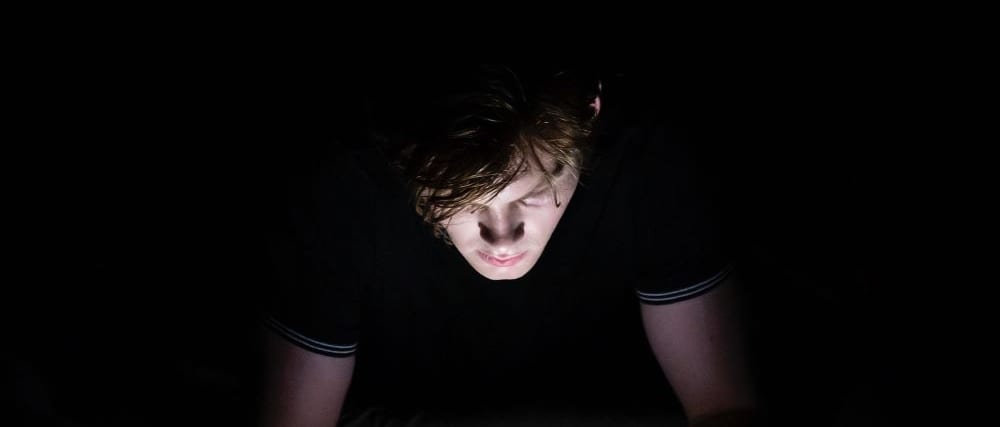This intriguing one-man show is about identity, anxiety, and self-confidence. Through the medium of a brief series of snapshots of a young man’s life, we get some penetrating glimpses of the pressures that young people face in a world where the sort of risks – and experiments in behaviour and relationships – that should be the right of everyone growing up, can be played back in the cruellest ways. Writer and performer, Jack Hesketh is a seriously likeable character and his semi-comic take on the trials of finding his place in the world never lets us forget that the undertow of anxiety and depression that so many young people live with is a constant presence too.
The piece opens with Hesketh in bed in an untidy room roused from sleep by his alarm and a very loud (and, I guess, ironic) “Mr Blue Sky” on his radio. ELO’s lyrics say “Mr. Blue Sky please tell us why -You had to hide away for so long – Where did we go wrong?” We then hear of the escapades and misadventures of the subject of the show. It begins with a lovely idea about what makes you happy when you are very young – the progression for our ‘hero’ is sunflower-football-guitar-money! We then cross back and forth from childhood battles to disastrous dates, from having your drink spiked to the sort of platitudes we sometimes get from therapists. There is a brief but revealing section of the meaning of ‘normal’.
Hesketh – and his director Coral Tarran – have come up with a well-choreographed production that keeps what is essentially a monologue constantly moving – and the fact that Hesketh is a very agile performer and so watchable makes the hour fly by. Near the end, Hesketh adopts the simple but potent device of using the light of his mobile phone as a mini-spotlight on his face “when the light is off, can you see me?” Just occasionally I wanted more on a topic and there were some important points that got touched on so briefly that I felt short-changed. In the programme, Hesketh reminds us that suicide is the biggest killer of men under 45 and he makes it clear that the purpose of the show is, for him, to get us thinking about issues of mental health and personal distress. It worked well.
The piece ends with Pale Blue Eyes, a song by Lou Reed and Velvet Underground “Sometimes I feel so happy – Sometimes I feel so sad” – a poignant and effective ending to the story.

